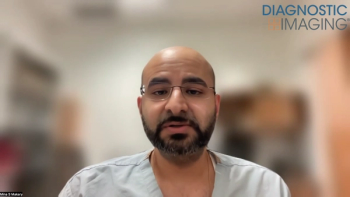
Force of Habit
How long does it take for old habits to die?
So there I was-counting down the days before I moved from one job to the next. And as I slogged through my daily onslaught of cases, the thought occurred regarding my soon-to-be-former job: I’m outta here. I will never see another QA alert from these guys again. For these last few hundred cases, I can read studies as I truly see fit.
By that, I mean rendering reports without a concern or effort to defend against what I sometimes consider “gotcha!” scrutiny-courtesy of anyone from fellow rads doing QA-reviews, to referring clinicians who might be feeling nitpicky, to ambulance-chasers looking for some medmal loot.
It’s entirely reasonable for some amount of quality-control to exist. To keep everyone on their toes, to have some means of measuring accuracy, or, God forbid, for errors to be caught in time to improve patient-care.
And yet, the vast majority of no-value-added behavior from rads like myself, as we go through our daily grind trying to avoid or at least minimize dings on our QA record, does not fulfill any of those pursuits. The “gotcha!” QAs that we have learned to avoid are of as little medical import as the hedging verbiage that we dictate to evade them.
So I thought: Here’s my chance. Until I start my new job, where an entirely separate QA profile will start from scratch, I can enjoy reading cases the way we’re supposed to. And maybe, here and there, I did exactly that-but for the most part, I just couldn’t do it.
Why not? Force of habit, to put it simply.
Related article:
Having been out of fellowship now for (yikes!) 13.5 years, I’ve had lots of time and case-volume to get accustomed to doing things a certain way. And our maladaptive QA and medicolegal systems have been in place way, way longer than that, long enough that any rads involved in my residency/fellowship training also spent most, if not all, of their careers accustomed to the same thing. How could they avoid passing along their own defensive-medicine habits to generations of rad-trainees under their wings? Indeed, they might consider it their responsibility to teach their charges how to stay out of trouble.
For this reason, I’ve always been leery of claims to study the impact of tort-reform on defensive medicine. It’s common sense: If you remove the constant threat from practicing physicians that a bad outcome can mean professional catastrophe, they’ll waste less time and effort trying to shield themselves from it.
But whenever the notion comes up to address this issue, inevitably there’s talk of “pilot projects” and a time-scale of months. If you’re dealing with generations upon generations of physician for whom defensive medicine has been the way of things, habits are going to be so entrenched that any change would, at the very least, take years. It would probably take one or two changings of the guard, not only until all of the docs who are currently practicing have retired, but also the docs they trained. Possibly even those subsequently trained by the trainees.
Which should make the denizens of the medical malpractice industry happy: as long as they can maintain the façade of an occasional pilot-project showing that a few months or even years of tort-reform have no measurable effect on defensive medicine, their gravy-train can keep on chugging along.
Newsletter
Stay at the forefront of radiology with the Diagnostic Imaging newsletter, delivering the latest news, clinical insights, and imaging advancements for today’s radiologists.












